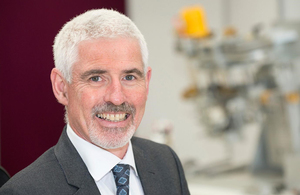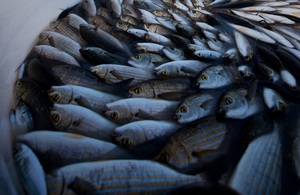The ambition of this new licensing and access pathway is to reduce the time to market for innovative medicines. The ILAP combines the MHRA’s globally recognised strengths of independence and high standards of quality, safety, and efficacy, with improved efficiency and flexibility, readying the MHRA for a new era in medicines approvals in the UK.
Central to realising this ambition is how the ILAP provides a single integrated platform for sustained collaborative working between the MHRA, partners and the medicine developer.
By harnessing expertise at the right time from the MHRA’s partners, the National Institute for Health and Care Excellence (NICE), the Scottish Medicines Consortium (SMC) and NHS England and NHS Improvement (NHSE&I), the ILAP allows for enhanced coordination and monitoring of important product development activities. Patients are also key partners and the patient voice will be integrated at every stage.
The “Innovation Passport”, a new medicine designation, acts as the gateway to entry into the pathway and will be awarded to innovative products submitted to the ILAP. This passport step incorporates broad and inclusive concepts of innovation and patient need, allowing the ILAP to encompass a wide range of medicines undergoing development, including Advanced Therapy Medicinal Products (ATMPs), medicines for rare diseases and repurposed medicines.
A successful Innovation Passport designation then triggers the MHRA and partners to create the “Target Development Profile” (TDP) document. This “living document” will set out a unique product-specific roadmap towards patient access in the UK healthcare system. The TDP includes access to tools from a toolkit that can be selected to design an efficient and “regulation and access ready” development programme. Available tools include continuous benefit-risk assessment, increased support for novel development approaches and enhanced patient engagement.
Lord Bethell, Minister for Innovation says:
We are absolutely determined to make sure UK patients can access the latest cutting-edge medicines as quickly as possible to help everybody live longer, healthier and happier lives.
Now we have left the EU, we have the freedom to innovate and cut red tape to speed up the approval process for new treatments and ensure patient safety is at the heart of everything we do.
The new pathway represents a totally new way of thinking and is a truly collaborative approach between the healthcare system, the pharmaceutical industry and patients with the common goal of getting the best products to the people who need them as safely and quickly as possible.
Transforming the way innovative medicines reach patients in the UK is not a ‘nice to have’. It’s a ‘must do’. An imperative. And the time to do it is now.
We are transforming the MHRA, making the regulator an enabler of innovation. Our new Innovative Licensing and Access Pathway has established new partnerships to robustly and safely support all new medicines at any point in their development, and most important of all, involve patients in all aspects of decision-making.
Prof Gillian Leng CBE, Chief Executive of NICE said:
NICE has a central role in ensuring flexible and swift access to innovative medicines for patients in England and supporting the life sciences sector to launch their products here. Partnering with the MHRA and others to build this frictionless pathway to the timely availability of cost-effective medicines is one of the ways NICE is delivering benefits for patients, the NHS, and life sciences industry.
A spokesperson from Healthcare Improvement Scotland, of which SMC is part, said:
Our aim is to ensure patients in Scotland can benefit from the best, most clinically effective and cost-effective treatments that are available. The ILAP offers a genuine and significant opportunity to ensure new and innovative products reach patients across the UK, safely and quickly. The SMC has a pivotal role in supporting the ILAP and stands ready to deliver for patients, partners and industry.
High quality health and social care research improves health and wellbeing. The ILAP will ensure that innovative new studies can start quickly without compromising standards, and that more people can benefit. The ILAP builds on a strong foundation of joint working between the MHRA and HRA to streamline approvals and ensure that trials are always safe, legal, ethical and fair, and we’re very pleased to support it.
Steve Bates OBE, Chief Executive of the BioIndustry Association (BIA) said:
The BIA welcomes the new Innovative Licensing and Access Pathway which was announced at our joint BIA-MHRA Conference in September. We are supportive of a joined-up life sciences ecosystem which would enable the UK to become a leading location for research and development of innovative medicines to the benefits of patients.
Richard Torbett, Chief Executive of the ABPI
It is really encouraging to see the MHRA launch a new Innovative Licensing and Access Pathway which will help our companies get new treatments to patients faster by offering them a similar rolling review as was done with the Pfizer/BioNTech vaccine and concurrent review by all parts of the health system. This is something we’ve been calling for as the MHRA prepares for Brexit.
Further information about the ILAP and how to apply for an Innovation Passport
Notes to editors:
- Information about the Innovative Licensing and Access Pathway.
- The Medicines and Healthcare products Regulatory Agency is responsible for regulating all medicines and medical devices in the UK by ensuring they work and are acceptably safe. All our work is underpinned by robust and fact-based judgements to ensure that the benefits justify any risks.
- The Medicines and Healthcare products Regulatory Agency (‘the agency’) has three centres. The MHRA, the National Institute for Biological Standards and Control (NIBSC) and the Clinical Practice Research Datalink (CPRD). The agency is an executive agency of the Department of Health and Social Care.
- The Scottish Medicines Consortium (SMC) is the national source of advice on the clinical and cost-effectiveness of all new medicines for NHS Scotland. As part of Healthcare Improvement Scotland, our aim is to ensure that people in Scotland have timely access to beneficial new medicines. Find out more at www.scottishmedicines.org.uk.


